International
Colombia’s president names ex-guerrilla as intel chief
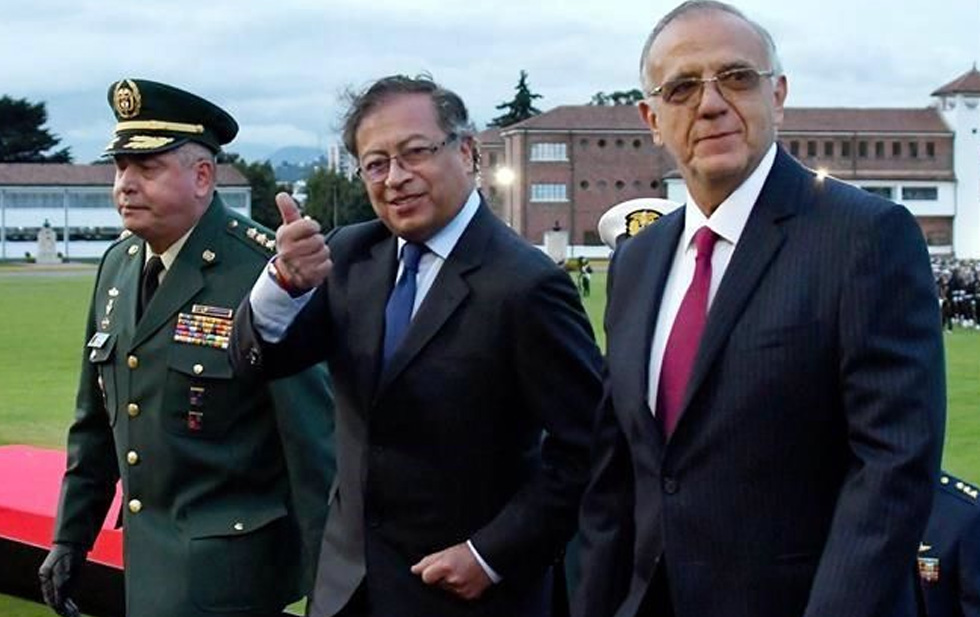
AFP
Colombian President Gustavo Petro has named a former guerrilla comrade as the conflict-wracked South American country’s intelligence chief, according to an official decree published Monday.
Manuel Alberto Casanova, who like Petro was a member of the long-disbanded M-19 urban guerrilla movement, becomes the first civilian to hold the position as general manager of the National Intelligence Directorate (DNI).
The radical leftist M-19 was active between 1974 and 1990, when it signed a peace deal with the government and became a political party.
Casanova took on the role of head of security for the new party, the M-19 Democratic Alliance.
An almost unknown on the political landscape, Casanova was in charge of spying and financing in the M-19 guerrilla group, local press say.
According to his LinkedIn profile, Casanova has a degree in philosophy and also studied public administration. He has worked as a consultant on social projects and most recently worked for a coffee exporting company.
The DNI reports directly to the president and oversees all intelligence operations. It was created in 2011 to replace the scandal-tainted Administrative Security Department (DAS).
“It’s worrying. (Casanova) is someone with no experience in intelligence management,” Jose Vicente Carreno, a legislator for the right-wing opposition Democratic Center party, told W Radio.
He said it would “demotivate the public security forces.”
For the pro-government senator and human rights activist Gloria Florez, the appointment shows a clear change of direction.
“In the old DAS we were the victims of an infamous persecution, of set-ups for which several people are still in prison. What we want is to give a different direction to state intelligence,” she told W Radio.
The latest appointment follows a complete overhaul of the military and police chiefs since Petro’s election in June as his country’s first ever left-wing president, something which has caused suspicion within the ranks of the security forces.
Around 30 army generals and police chiefs have left their posts.
Petro, who has said he wants to break from the old policy of an “enemy within” that has underscored six decades of internal conflict, wants to transform the security forces.
He has said he wants from them “the reduction of violence and criminality, and a substantial increase in respect for human rights and public liberties.”
International
Colombia slams Ecuador’s 30% tariff as ‘economic aggression’
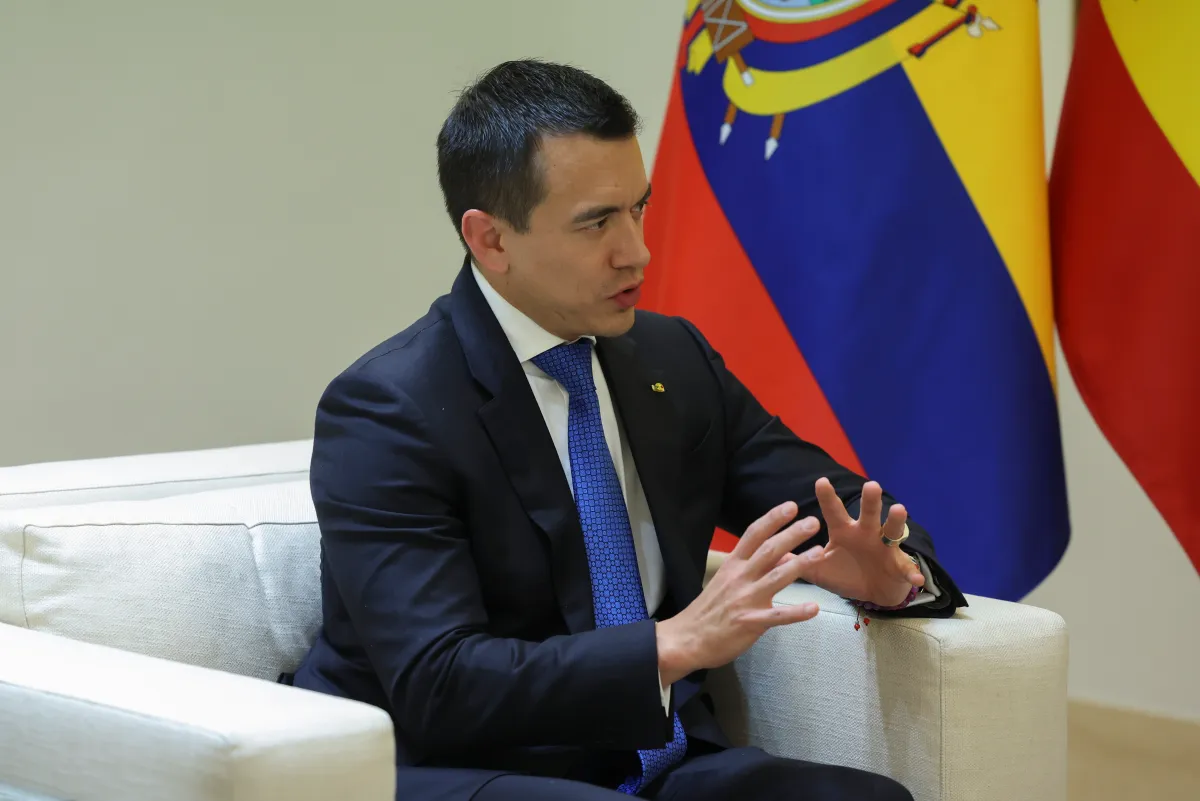
Colombia’s Minister of Mines and Energy, Edwin Palma, on Wednesday described as an “economic aggression” the 30% “security fee” imposed by Ecuadorian President Daniel Noboa on imports from Colombia.
“We reject the tariff measure imposed by Ecuador, an economic aggression that breaks the principle of regional integration,” Palma said in a post on X.
President Noboa explained that the decision was taken due to what he described as a “lack of reciprocity and firm actions” by Colombia in the fight against drug trafficking. He added that despite Ecuador having made “real efforts of cooperation,” including maintaining a trade deficit exceeding $1 billion annually, the country’s armed forces continue to face drug-linked criminal groups along the border without any cooperation.
For that reason, Noboa stated that the measure will remain in place “until there is a real commitment” from Colombia to jointly confront drug trafficking and illegal mining along the 586-kilometer shared border, with the same level of determination Ecuador is currently applying.
According to official data, Ecuador seized 214.5 metric tons of drugs in 2025, down from the record 294.6 tons confiscated in 2024.
Colombian President Gustavo Petro said on January 7 that during his administration, which began on August 7, 2022 and ends this year, drug seizures have increased significantly, adding that total confiscations are expected to exceed 3,500 tons by the time he leaves office.
International
José Jerí claims destabilization attempt after videos of secretive meetings surface
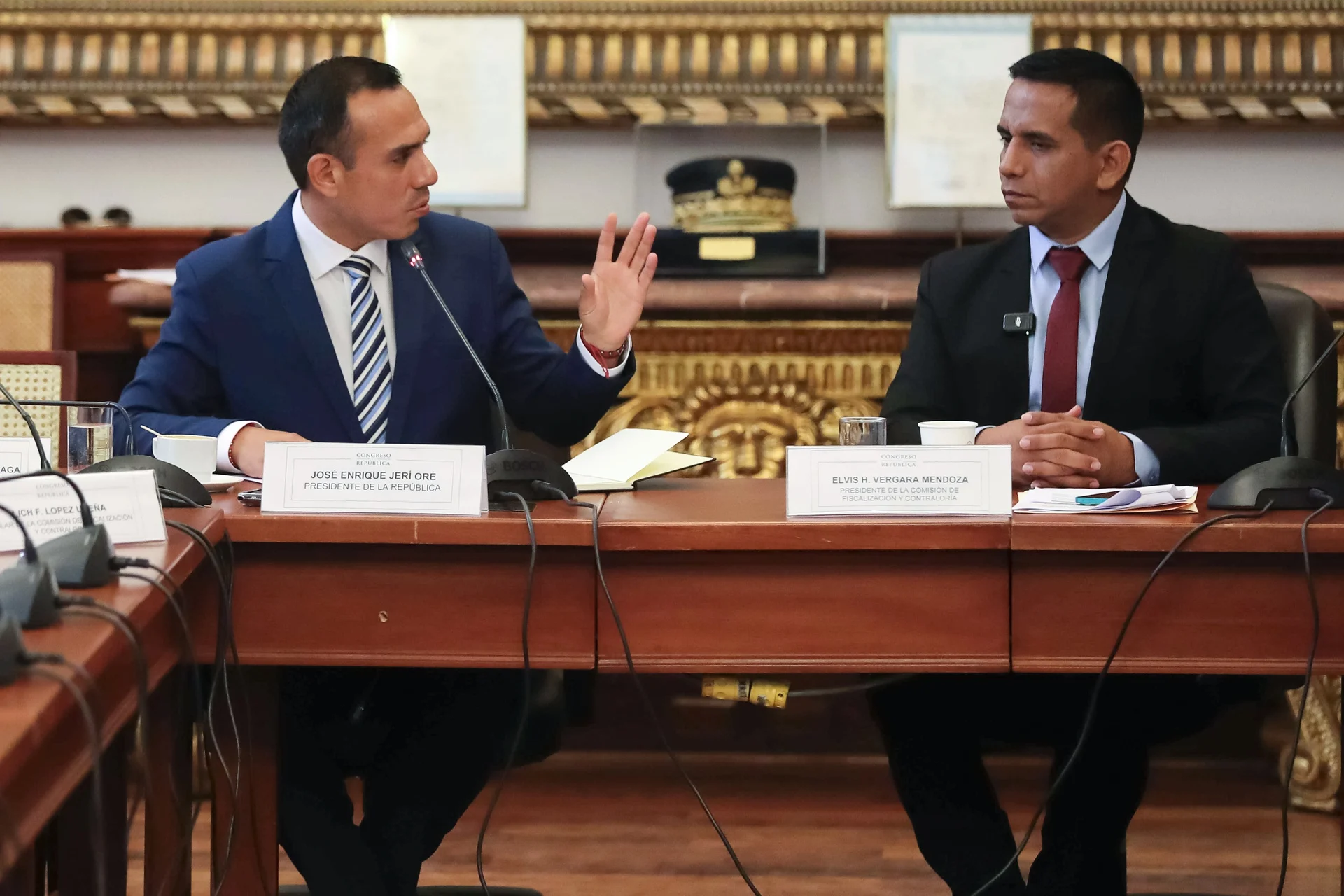
Peru’s interim president, right-wing leader José Jerí, on Wednesday denounced an alleged plot against him and warned of a deliberate attempt to destabilize the country, following the release of a series of videos showing semi-clandestine meetings with a Chinese businessman, as well as visits to the Government Palace by another businessman of the same nationality who is under house arrest.
“I also want to know who is behind this entire plot. I am an objective and impartial president who does not give in to pressure, but someone has found a way to do so. I want to know who is behind it and what their real objective is,” Jerí said while appearing before Congress’ Oversight and Comptroller Commission.
The interim president, who recently marked 100 days in office after replacing former president Dina Boluarte (2022–2025) in his role as head of Congress, insisted that he has never lied to the country. Without directly accusing any individual or group, he argued that routine activities—such as visiting a restaurant or a shop—are being portrayed with a “malicious” intent.
So far, reports indicate that on December 26, close to midnight, Jerí visited a chifa restaurant—a Peruvian-Chinese eatery—owned by Chinese businessman and state contractor Zhihua “Johnny” Yang, accompanied by Interior Minister Vicente Tiburcio, and wearing a hood. On January 6, he also visited a shop belonging to the same businessman, which had been shut down by municipal authorities just hours earlier.
The revelations have fueled political controversy and renewed scrutiny of the interim administration’s actions amid Peru’s ongoing political instability.
International
Mexican influencer “La Nicholette” kidnapped in exclusive area of Culiacán

The content creator known as “La Nicholette,” also referred to as “La Muchacha del Salado,” was kidnapped Tuesday afternoon in Isla Musalá, one of the most exclusive residential areas of Culiacán, capital of the northern Mexican state of Sinaloa, according to local media reports on Wednesday.
The abduction was captured by the security camera of the young woman’s vehicle, a lilac-colored Tesla Cybertruck, which was later found abandoned at the scene.
Video footage circulating on social media shows a masked man carrying a long firearm preventing the influencer from entering her vehicle, while another individual forces her into a white sedan, reportedly an older-model Toyota Corolla.
According to media reports, the incident occurred at approximately 5:00 p.m. local time (2300 GMT) at the intersection of Tachichilte Avenue and San Esteban Street, within the Musalá residential area.
Authorities have not yet released official details regarding the victim’s whereabouts or the motives behind the kidnapping.
-

 International2 days ago
International2 days agoDeath toll from southern Spain train crash rises to 40
-

 International5 days ago
International5 days agoU.S. deportation flight returns venezuelans to Caracas after Maduro’s ouster
-

 Central America2 days ago
Central America2 days agoGuatemala raises police death toll to nine after gang violence escalates
-

 Central America4 days ago
Central America4 days agoGuatemala prison uprisings leave 46 guards held by gangs
-

 International2 days ago
International2 days agoOver 160 christian worshippers kidnapped in Kaduna Church attacks
-

 International7 hours ago
International7 hours agoMexican influencer “La Nicholette” kidnapped in exclusive area of Culiacán
-

 International1 day ago
International1 day agoDaily Mail publisher insists reports relied on legitimate sources amid privacy trial
-

 International4 days ago
International4 days agoChile declares state of catastrophe as wildfires rage in Ñuble and Biobío
-

 International1 day ago
International1 day agoGermany says football bodies alone will decide on possible World Cup boycott
-

 International5 days ago
International5 days agoFormer South Korean President Yoon sentenced to five years in prison
-

 International2 days ago
International2 days agoSpain’s Prime Minister pledges transparency after train crash kills at least 39
-

 International7 hours ago
International7 hours agoTrump announces preliminary NATO agreement on Greenland, suspends tariffs on Europe
-

 International7 hours ago
International7 hours agoMajor winter storm to blanket U.S. and Canada with snow, ice and arctic cold
-
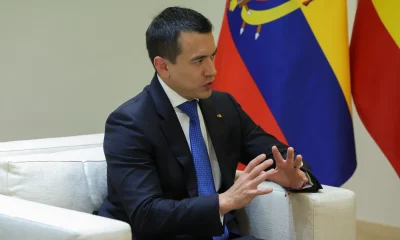
 International6 hours ago
International6 hours agoColombia slams Ecuador’s 30% tariff as ‘economic aggression’
-
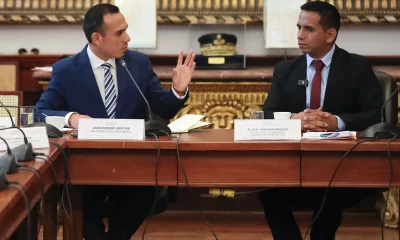
 International6 hours ago
International6 hours agoJosé Jerí claims destabilization attempt after videos of secretive meetings surface


























